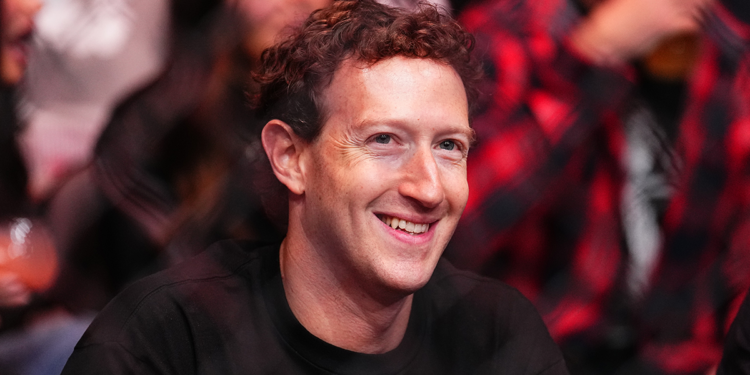Mark Zuckerberg’s fortune surged by $8 billion on Monday, June 2, 2025, as shares of Meta Platforms Inc. climbed nearly 4%, buoyed by investor optimism over the company’s expanding artificial intelligence ambitions.
Meta’s stock rose $23.41 to close at $670.90, outperforming the broader S&P 500 index, which added just 0.4% on the day.
The rally lifted Zuckerberg’s real-time net worth to $231.6 billion, according to Forbes, making him the second-richest individual in the world as of Tuesday morning.
The gains followed a report in The Wall Street Journal suggesting Meta is planning to roll out a comprehensive suite of AI tools designed specifically for advertisers.
According to unnamed sources cited in the article, the tools would allow businesses to generate complete ad campaigns using AI, including ad creative and precise audience targeting. The new capabilities could debut by the end of 2026, though Meta has not officially confirmed the report.
While Meta already employs artificial intelligence in limited advertising applications, the reported expansion would mark a significant step forward in its strategy to modernize its revenue engine. Nearly all of Meta’s income is derived from digital advertising, and with competition intensifying from platforms like TikTok and YouTube, new technology could provide a critical edge.
What to know
Investor enthusiasm for artificial intelligence has been one of the dominant themes driving markets over the past year, particularly in the tech sector. Meta’s apparent pivot toward AI aligns it with industry leaders such as Alphabet and Microsoft, who are similarly racing to integrate generative AI into their core products and services.
Zuckerberg, 40, co-founded Facebook in 2004 while a student at Harvard University. The company went public in 2012 and rebranded to Meta in 2021, signaling a long-term bet on the metaverse, a virtual reality-powered digital environment that has yet to deliver commercial returns. In recent months, however, Meta appears to have shifted its attention to artificial intelligence, which investors view as a more immediate growth driver.
The timing of the company’s AI push may be strategic. Digital ad growth has slowed industry-wide, and privacy changes across mobile platforms have disrupted traditional ad tracking methods. AI-generated content, microtargeting, and automation promise to restore some of the precision that advertisers have lost in recent years.
Zuckerberg owns approximately 13% of Meta’s shares and maintains controlling voting power through a dual-class share structure. In 2015, he and his wife, Priscilla Chan, pledged to give away 99% of their Meta stake over their lifetimes through their philanthropic vehicle, the Chan Zuckerberg Initiative.
Despite regulatory scrutiny and criticism over content moderation and data privacy, Meta remains a dominant force in global social media through platforms such as Facebook, Instagram, and WhatsApp.
















